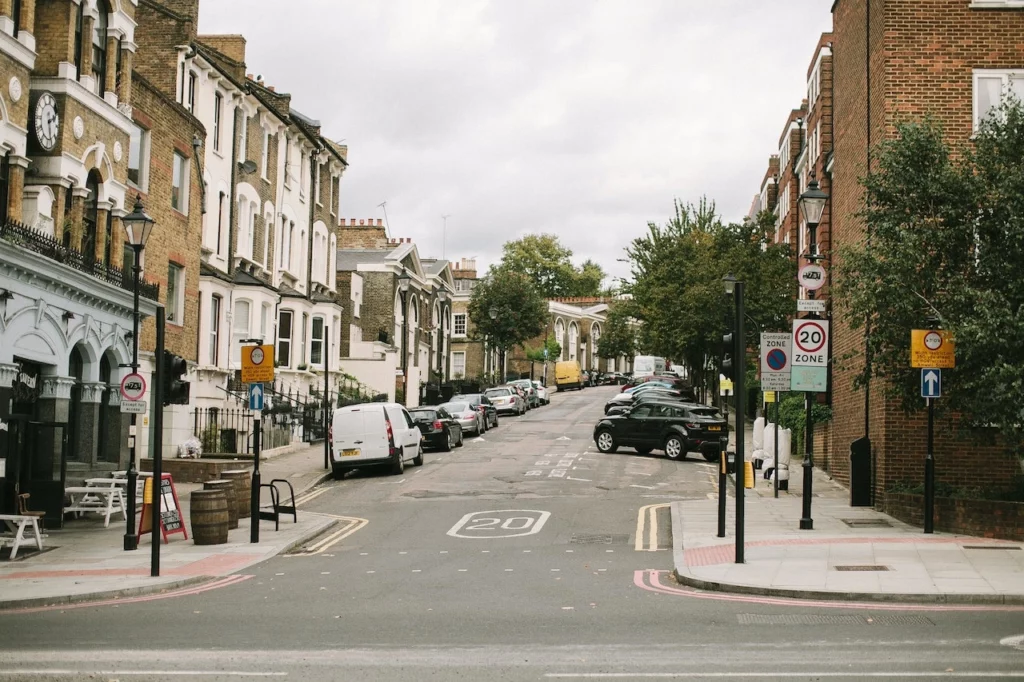Rent a room in London: The Ultimate Guide
Are you feeling overwhelmed and unsure of where to start as you search for the perfect room to rent in London? Look no further! Our comprehensive guide is here to help guide you through the process and alleviate some of the stress. Don’t let the search for a new home weigh you down – let us help you take the first steps towards finding a place to call home.
If you’re considering to rent a room in London, you’re not alone. With high housing costs and a demand for affordable accommodation, many people in the city opt to rent a room instead of an entire apartment. But finding the right room and the right roommates can be a challenge. Here’s a comprehensive guide to help you navigate the process to rent a room in London.

Table of Contents
Step 1: Research the Different Neighborhoods
When you’re looking to rent a room in London, the first step is to research the different neighborhoods and determine which one is the best fit for you. London is a large and diverse city, with many different areas to choose from, each with its own character, amenities, and rental prices.
Locations
North London: North London encompasses a wide range of neighborhoods, from the bustling hub of Camden to the leafy suburbs of Hampstead and Highgate. This area is known for its diverse population, vibrant nightlife, and world-class museums and galleries. Rental prices in North London tend to be higher than in other parts of the city, but there are still some more affordable options available.
South London: South London is known for its mix of residential streets, parks, and high streets. Neighborhoods like Clapham, Dulwich, and Greenwich offer a more laid-back and suburban feel, and are popular with families and professionals. Rental prices in South London are generally lower than in the center of the city.
East London: East London is known for its edgy and creative vibe, with neighborhoods like Shoreditch, Hackney, and Dalston attracting artists, students, and young professionals. This area offers a wide range of independent shops, cafes, and bars, and is known for its vibrant nightlife. Rental prices in East London tend to be lower than in Central London, but they are still on the rise.
West London: West London encompasses a wide range of neighborhoods, from the upscale and fashionable neighborhoods of Chelsea and Kensington to the bustling hub of Notting Hill. This area is known for its high-end shopping, dining, and entertainment options, as well as its leafy residential streets. Rental prices in West London tend to be higher than in other parts of the city.
To help you decide on the right neighborhood where to rent a room in London, you might want to consider using online resources like classified websites, social media groups, and local blogs, as well as speaking with friends or colleagues who live in the city. You might also want to consider visiting the different neighborhoods in person to get a sense of the area and
Step 2: How much you should spend to rent a room in London?
The cost of renting a room in London varies widely depending on a number of factors, including the location, size, and condition of the room, as well as the length of the tenancy and the number of roommates you have.
In general, you can expect to pay anywhere from £600 to £1,300 per month if you want to rent a room in London, although prices can be higher or lower depending on the neighborhood and the amenities included. For example, a room in a shared house in a more affordable neighborhood like Hackney or Greenwich might cost around £850 per month, while a room in a luxury apartment in a central location like Chelsea or Mayfair might cost closer to £1,300 per month or if you have a shared living room you can expect to pay £1.000 per month.
It’s important to keep in mind that rental prices in London are among the highest in the country, and they are likely to continue rising in the coming years. Therefore, it’s important to set a realistic budget and be prepared to compromise on location, size, or amenities in order to find an affordable room.
To get a better idea of the rental prices in different neighborhoods of London, you can use platforms like spareroom or spotahome, groups in facebook, as well as speaking with friends or colleagues who live in the city. You can also have a look to our properties!
Step 3: Make Sure You Feel Comfortable and Safe in the Room and the Surrounding Area

When you’re looking to rent a room in London, it’s important to make sure that you feel comfortable and safe in the room and the surrounding area. After all, you’ll be spending a lot of time in your new home, and you want to make sure that it’s a place where you feel at ease.
To make sure that you feel comfortable and safe in your new room, there are a few things you can do:
Check the condition of the room: Make sure that the room is in good condition and that it meets your standards of cleanliness and comfort. Check for any signs of damage or wear and tear, and ask the landlord or homeowner about any repairs that might be needed.
Check the security of the building: Make sure that the building is secure and that you feel safe coming and going. Check for things like secure locks, working intercoms, and well-lit common areas.
Check the location: Visit the neighborhood during the day and at night to get a sense of the area and the people who live there. Look for things like parks, shops, and restaurants, and make sure that you feel comfortable walking around the neighborhood.
Ask about any additional safety measures: If you have any specific safety concerns, such as being on a high floor or living in a busy area, be sure to ask the landlord or homeowner about any additional safety measures that might be in place.
By following these steps, you can make sure that you feel comfortable and safe in your new room and the surrounding area, which will help you feel at home in your new home.
Step 4: Check for Any Additional Fees
When you’re looking to rent a room in London, it’s important to be aware of any additional fees that might be involved in the rental process. These fees can add significantly to the overall cost of the rental, and it’s important to budget for them in advance.
Here are some common fees that you might encounter when you rent a room in London:
Administration fees: Some landlords or homeowners may charge a Provisional of service fee to cover the cost of processing your application, credit check, and other administrative tasks. These fees can range from a few hundred pounds to several thousand pounds, depending on the landlord or homeowner.
Holding deposits: You may be required to pay a holding deposit to secure the room while the rental process is underway. This deposit will be held by the landlord or homeowner and will be applied towards the rent or deposit when you move in.
Rent in advance: You will typically be required to pay the first month’s rent in advance when you move in, as well as any rent that is due before the tenancy starts.
Utility bills: In some cases, you may be responsible for paying your own utility bills, such as electricity, gas, water, council tax etc. These bills can vary widely depending on your usage and the time of year, so it’s a good idea to ask the landlord or agency for an estimate before you move in.
By being aware of these additional fees and budgeting for them in advance, you can avoid any unexpected costs and make sure that you can afford the room you’re interested in.
Step 5: Be Prepared to Pay a Deposit and Sign a Tenancy Agreement
Once you’ve found a room that meets your needs and budget, you’ll need to go through the rental process to secure the room. This typically involves paying a deposit, signing a tenancy agreement, and possibly undergoing a credit check.
If you want to rent a room in London, you’ll want to have the following documents and information ready:
Identification: You’ll need to provide proof of your identity, such as a passport or driver’s license.
Credit check: Some landlords or homeowners may require a credit check to ensure that you are financially responsible. This check will look at your credit history and credit score to determine your risk as a tenant.
References: You’ll likely be asked to provide references from a previous landlord, employer, if you don’t have you will have to provide a guarantor or to pay in upfront.
Deposit: As mentioned earlier, you will typically be required to pay a deposit upfront, which will be held by the landlord or homeowner as security against any damage or unpaid rent. The amount of the deposit will vary, but it is usually equivalent to 5 weeks deposit.
Once you’ve gathered all of the necessary documents and information, you’ll be ready to sign a tenancy agreement. A tenancy agreement is a legally binding contract between you and the landlord or homeowner that outlines the terms of the rental arrangement, including the length of the tenancy, the rent, and any rules or regulations.
It’s important to read and understand the tenancy agreement carefully before you sign it, and to ask any questions you may have. If you’re unsure about any of the terms or conditions, you might want to consider seeking legal advice or mediation.
By following these steps and being prepared to rent a room in London, you can secure the perfect room in London and start enjoying your new house!
Step 6: Trust Your Instincts and Go with the Option That Feels Right for You

When you’re looking to rent a room in London, it can be overwhelming to sift through all of the options and make a decision. There are many factors to consider, including location, price, size, and amenities, and it can be difficult to know which option is the best fit for you.
One important thing to remember is to trust your instincts and go with the option that feels right for you. While it’s important to do your research and consider all of the factors, ultimately, you are the one who will be living in the room, and you want to make sure that it’s a place where you feel comfortable and at home.
To help you trust your instincts and make the right decision, there are a few things you can do:
Take your time: Don’t feel rushed to make a decision. Take your time to look at all of the options and consider all of the factors that are important to you.
Listen to your gut: When you see a room or meet a landlord or homeowner, pay attention to your gut feelings. If something doesn’t feel right, it’s probably best to keep looking.
Consider your priorities: Make a list of your priorities when it comes to your room and use it as a guide when making your decision. This can help you stay focused and avoid getting swayed by unnecessary features or distractions.
Seek advice: If you’re still unsure about which option is right for you, seek the advice of friends, colleagues, or professionals. They may be able to offer helpful insights and perspective.
By following these steps and trusting your instincts, you can help ensure that you make the right decision and find a room to rent that feels like home. Remember, this is an important decision, and it’s okay to take your time and make sure that you feel good about the choice you make. Ultimately, the right room for you is the one that meets your needs, budget, and lifestyle, and that makes you feel happy and at home.
Step 7: Communicate Openly and Honestly with Your Roommates
If you’re planning to rent a room in London and to share the house with one or more roommates, it’s important to communicate openly and honestly with them to set the stage for a harmonious living situation. By establishing clear boundaries and expectations from the beginning, you can avoid misunderstandings and conflicts down the line.
To communicate effectively with your roommates, there are a few things you can do:
Set ground rules: Establish clear rules and boundaries around things like noise levels, common areas, and guests. Discuss these rules with your roommates and make sure that everyone is on the same page.
Communicate openly: Don’t be afraid to speak up if you have a concern or a problem. By communicating openly and honestly, you can resolve any issues before they become major problems.
Be respectful: Remember that you are sharing a living space with your roommates, and that you need to respect their privacy and needs. Be considerate of their schedules and habits, and try to be a good neighbor.
Be open to compromise: It’s likely that you and your roommates will have different schedules, habits, and preferences. Be open to compromise and try to find solutions that work for everyone.
By following these steps and communicating openly and honestly with your roommates, you can create a positive and harmonious living situation and make the most of your time in London.
Step 8: Make the Most of Your Time in London
Now that you’ve found the perfect room and settled into your new home in London, it’s time to make the most of your time in the city. London is a vibrant, exciting, and diverse city with something for everyone, and there are plenty of ways to explore and enjoy all that it has to offer.
Here are some things you can do to make the most of your time in London:
Explore the neighborhoods: London is made up of many different neighborhoods, each with its own character and charm. Take the time to explore different areas of the city and discover what makes each one unique.
Visit the landmarks: London is home to many iconic landmarks, such as Buckingham Palace, Big Ben, and the London Eye. Take the time to visit these landmarks and get a sense of the city’s history and culture.
Try new foods: London is home to a diverse range of cuisines, and there are plenty of opportunities to try new foods and explore the city’s food scene. Whether you’re looking for fine dining or street food, you’ll find something to suit your taste and budget.
Meet new people: London is a cosmopolitan city with a diverse population, and there are many opportunities to meet new people and make connections. Join a club or group, volunteer, or attend events to meet people with similar interests.
By following these steps and making the most of your time in London, you can have a rich and rewarding experience living in this vibrant and exciting city.
To sum it up, finding the perfect room to rent in London can be a challenging but rewarding process. By following these steps and considering all of the factors that are important to you, you can increase your chances of finding a room that meets your needs, budget, and lifestyle. Whether you’re looking for a room in a shared house, an apartment, or a house, there are plenty of options available in London.
So take the time to explore all of your options and don’t be afraid to ask questions. With a little bit of patience and persistence, you can find the perfect room in London and start enjoying all that the city has to offer.

